Gregg Hartsuff
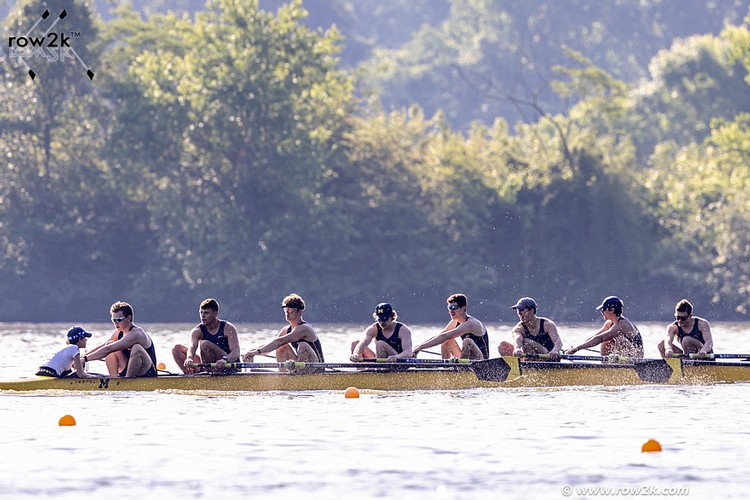
Read the first two parts of Gregg's essay here:
ACRA Enters a New Era, Part 1: The Formation of ACRA.
ACRA Enters a New Era, Part 2: The Challenges and Rewards of Building a Club Rowing Program.
I'll conclude this lengthy essay with advice for future coaches and athletes who find their varsity team moved to club status. This also may also be of use to current ACRA teams.
ORGANIZE YOUR ALUMNI
An organized alumni booster club serves countless needs, the primary one being fundraising. A "Friends of XXXX Rowing" non-profit is your most effective measure for political clout for an existing varsity or club program and will be helpful if the varsity team is shifted to club status. If it is a varsity program and the university decides to remove varsity status, your best chance at retaining varsity status is having a unified voice from a group of people who contribute to the university. If it is a club program, then those included can express their wishes to administrators and support the program financially via incentives and goal-driven efforts.
There is a lot of pressure put on the development offices of athletics and Student Life. Universities are run like businesses today and administrators are primarily judged on how far into the black they finish. Club sports are a losing investment, as unlike intramurals, group exercise programs, and facility rentals, there is no revenue generated from club sports - unless the university charges your participants. This is common and it is in addition to regular team dues. However, development officers within Student Life now recognize that, like varsity teams, alumni of the various club teams are a source of gifts, some of them generous.
I highly recommend that your organization assemble itself outside of the university umbrella. The organization should get its own 501(c)3 status, have an elected board, and not receive its oversight from the university. Honestly, the basis for this suggestion is that I don't trust university program administrators to use the funds that come through university development as intended by the donors in ways that ideally benefit the program. They rarely interact with the team to discuss their needs, and next-to-never consult with the coaches.

If university development officers do the fundraising and money comes in, they tend to put it towards where they think could be best applied, and not necessarily where the team needs it. They do things like put non-earmarked money towards general facility improvements, justifying it because the team uses university resources, and they may benefit. In reality, they want rowing donors to pay for an improvement that services the whole university.
If your alumni are organized, with their own accounting system, they will have more negotiating power. Alums are more personally invested, and they know better than club sport administrators what is needed. As frequently as team leadership overturns, and along with the club sport administrator's unwillingness to correspond with the coach on long-term projects, then having an alumni voice who doesn't answer to the university assures continuity.
Bottom line: The team gets what is essential. Resources can be acquired by the Alumni 501(c)3 directly and donated, or through a very determined, targeted donation with the university after the money is collected, or perhaps with a Memo of Understanding.
An excellent example of this is equipment. Plenty of state universities must follow a purchasing policy that affects the entire university where items that exceed a fixed dollar amount must be set out for bid. Administrators who do not care about competitive results may insist on the cheapest piece of equipment. Nonetheless, if the Alumni 501(c)3 is specific as to the type of boat, boat maker and model, then the administrators are required to follow the direction of the donor. And if that is a problem, then the Alumni 501(c)3 can purchase the boat directly and donate it to the program.
SOCK AWAY THE MONEY
If you don't have an endowment started to defray or cover costs altogether for what you need to operate your program, then you should work to get one in place. A primary reason sports are dropped are lack of funds. If your program is endowed or elements of the budget are endowed, then that will be one less factor in the decision to disengage your sport. It should be a goal of your alumni to build an endowment to cover the entire operating budget, including coaching salaries and scholarships. This can provide the security blanket needed, or at least eradicate a persuasion toward removing the team from the varsity ranks.
PAY ATTENTION TO ATHLETIC HIRES
A change in athletic directors, or maybe a university president, is when a sport is most at risk of being cut. It won't happen immediately after the new hire. Typically, an upper administrator will spend the first year getting the lay of the land and looking closely at budget priorities. If a leadership change in athletics is being planned, then your alumni organization leadership needs to be assertive in the hiring process.
If it is a public university, then the process must be open. Knowing who is on the search and hiring committee will be important. If possible, you should integrate an ally into the committee. Sometimes a new athletic director will be hired to discharge the will of the board of intercollegiate athletics as a strategic shift. These tactical shifts almost always involve consolidating the dollars into less teams, which means obscure sports like rowing are at risk of being axed. At your university the board of intercollegiate athletics' actual power varies from institution to institution, as some boards are more of an advisory board and some have a degree of oversight. Regardless, having allies in place, through tactical networking, can only benefit your team in the long-run.
PREPARING FOR THE WORST
If the university eventually revokes varsity status, and the program remains a club despite the lawsuits and appeals that follow, the new organization will need some immediate structure if the team is to survive as a club. In Part 2 I mentioned how typical university philosophy regarding student organizations is to use a hands-off approach that requires the students sort out their governance. That process lays the foundation for initial success or failure. Forming a team constitution, sorting out duties, defining who has decision-making authority, and setting up governance is what the university provides as the learning experience. They aren't too concerned about functionality, just that the experience is had.
I call the model the best performing collegiate club rowing teams use "Coach-Led, Student-Run". These teams have a coach who has the reins of the team. Club sport administrators often try to ensure a situation that excludes the coach from decision-making. They know that an opinionated coach who presses for resources will make life hard for them professionally, as well as remove that duty from the students. It is much easier to deal with students who will be gone in a year or two, and their motivation taken with them. Their interpretation of "student-run" is that the students make the decisions. They want the impact of the student leaders' decisions felt by their teammates, and thus the consequences felt. Again, they aren't concerned about athletic performance.
Most club-sport administrators do see the value of having a coach. One obvious value is safety. Risk managers for the university will require club-sport administrators to train coaches in safety practices. This is your best angle for professional coaching to be included in the governance structure. My team's constitution has it very specifically written into it that the head coach has administrative duties and oversight as part of their job description. We have an executive board, composed of the student officers, and an executive committee that the head coach oversees, that is composed of the officers and coaches. This assures that the head coach can steer the governing body professionally.
There are a number of different levels that U.S. universities handle club sport coaches. Some allow for university employment. Others do not employ the coach but recognize them professionally. Others are loose; they are aware there is a coach but don't interact with them. Just realize that everything you do will have an impact on performance. This includes the types of fundraising you do, policies that are set up, and how duties are carried out. A coach needs input on direction of all aspects of the program, including these.
Whatever the university's stance is on coaches, you need to be prepared to advocate for a Coach-Led, Student-Run model if your team is going to have a chance for success. And that may not be the philosophy of the university. Fighting aspects of a philosophy with stubborn administrators takes a lot of time and politicking and the student-officers and alumni body will need to advocate for it together for any chance of success.
THERE IS NO SHAME IN BEING A CLUB TEAM OR A STUDENT-ATHLETE ON A CLUB TEAM
I can understand why the current athletes and alumni of a newly transitioned varsity-to-club team would want to fight to retain their status. If you have institutional support, it can open opportunities and possibilities. And athletes who were recruited with the vision of competing at the IRA or NCAA championships had that rug pulled from under them, and it stings. You want the opportunity you signed up for.
University administrators will stop looking at team members as student-athletes and start looking at them as "club participants". That doesn't mean you need to do that. You are responsible for how you view yourself. Being a student-athlete is a mindset, more than a title. It will come down to how you behave and how hard you work. Set lofty goals and go for them. Having varsity-status isn't required to work hard.
You can be assured your program has a high-quality national championship to compete at if this happens to your program. In the fifteen years since the IRA-ACRA split happened the ACRA national championship has grown into the largest collegiate championship in the U.S., surpassing the Dad Vail in terms of the number of entries and competitors this year. And this happened after a two-year break due to the Covid-19 pandemic.
As I said to the GW guys after they won the 2022 ACRA, I'm sure that ACRA seems more like the NIT when you had your heart set on racing at the IRA. And I know what it's like to have the IRA taken away from you. But we've built an extremely competitive race that is a lot of fun, with a coach-run national association based on representation, free from athletic director input and focused on making the student-athlete experience as good as it can be.
The sport can be enjoyable for the same reasons as with varsity status, and while not all ACRA programs train with the tenacity that most varsity programs do, to win ACRA you will have to train hard and must bring your A-Game on finals day.
On the upside, it can be an opportunity that you wouldn't otherwise have with a varsity team. Running a collegiate club team is complicated, and even after 37 years in the sport I am constantly adjusting to new things as the university environment changes, the kids change, and the sport changes. But once your alumni base is large enough, and gives back enough, the status won't really matter too much. One major benefit is you get a hand in running an aspect of the program, and the pride of ownership can accompany the experience and make you want to give back to the sport and support your team for the rest of your life.
You will be tested in a way you wouldn't have been. When you are knee-deep into a rent-a-rower job digging a trench for an elderly community member who lives alone and is thrilled to have a young person helping them out, and exhausted from training and studying, you may question "is it all worth it?"
You say you love rowing, but do you love it enough to row at a club? If so, welcome to ACRA.

If you enjoy and rely on row2k, we need your help to be able to keep doing all this. Though row2k sometimes looks like a big, outside-funded operation, it mainly runs on enthusiasm and grit. Help us keep it coming, thank you! Learn more.
Comments | Log in to comment |
- Bont Rowing
- Calm Waters Rowing
- Concept 2
- Craftsbury Sculling
- The Crew Classic
- CrewLAB
- Croker
- Dad Vail Regatta
- Durham Boat Co.
- Empacher
- Faster Masters
- Filippi
- Fluidesign
- h2row.net
- HUDSON
- Live2Row Studios
- Nielsen-Kellerman
- Oak Ridge RA
- Peinert Boat Works
- Pocock Racing Shells
- Race1 USA
- Rockland Rowing Masters Regatta
- RowKraft
- Rubini Jewelers
- Vespoli USA
- WinTech Racing
- Bont Rowing
- Calm Waters Rowing
- Concept 2
- Craftsbury Sculling
- The Crew Classic
- CrewLAB
- Croker
- Dad Vail Regatta
- Durham Boat Co.
- Empacher
- Faster Masters
- Filippi
- Fluidesign
- h2row.net
- HUDSON
- Live2Row Studios
- Nielsen-Kellerman
- Oak Ridge RA
- Peinert Boat Works
- Pocock Racing Shells
- Race1 USA
- Rockland Rowing Masters Regatta
- RowKraft
- Rubini Jewelers
- Vespoli USA
- WinTech Racing



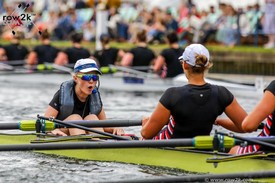



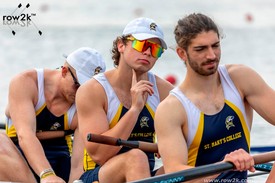
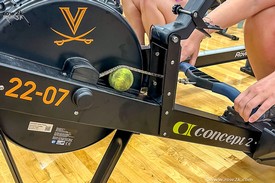
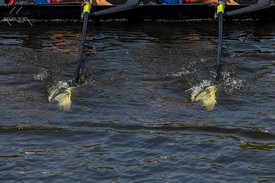







05/23/2023 2:15:57 PM